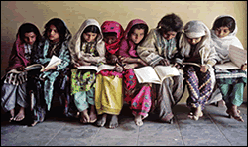مجموعة غزة 400 Gaza
The official website of the group 400 Gaza
الاثنين، 28 مايو 2012
الخميس، 8 مارس 2012
يوم المرا ة العالمي
غزة - خاص مجموعة غزة 400 يوم المرا ة العالمي
في ذكرى الثامن من آذار يوم المرأة العالمي، تتقدم مجموعة غزة 400 من الأخوات الاعضاء فى المجموعة ومن أمهاتنا واخواتنا وصديقاتنا ورفيقاتنا وكل نساء فلسطين بالتهنئة القلبية الحارة لهن لأننا فى هدا اليوم نرفع هاماتنا عاليا لنهنىء أنفسنا وكل نساء فلسطين والنساء العربيات ونساء العالم أجمع محتفيات بكل الإنجازات التي حققتها المــرأة، مكسّرات كل حواجز الصمت، والإقصاء والعبودية، رافعات الهامات عاليا في نضالاتنا من أجل غد أفضل لنا ولمجتمعاتنا، مشاركات في كل الفعاليات الوطنية دفاعا عن الحرية والكرامة والمساواة، ، متحدّيات كل سياسات الاحتلال الإسرائيلي، محتضنات أطفالنا في بيوت هدمتها فاشية العصر الجديد في القدس المحتلة، ومتحديات القصف والتهجير في قطاع غزة، صامدات أمام همجية المستوطنين فى رام الله ، متصدّرات مواقع اتخاذ قرار هامة، مخترقات سوق العمل والإنتاج، مبدعات في العلم، حاصلات على أعلى نسبة مقاعد في الجامعات.
عاملات...كاتبات....مثقفات....إعلاميات....مهنيات....أكاديميات...رياديات...قياديات
في كل الميادين متألقات
المجلس التنفيدي
لمجموعة غزة 400
 |
| تصوير (سلطان ناصر ) |
في كل الميادين متألقات
المجلس التنفيدي
لمجموعة غزة 400
الأحد، 12 فبراير 2012
المجلس التنفيذي لمجموعة غزة 400 يدعوا أعضاء المجموعة للاضراب عن الطعام غداً الاثنين
المجلس التنفيذي لمجموعة غزة 400 يدعوا أعضاء المجموعة للاضراب عن الطعام غداً الاثنين 13/12/2012 وذلك تضامناً مع الشيخ الاسير خضر عدنان المضرب عن الطعام منذ أكثر من 55 يوم احتجاجا على تمديد اعتقاله الاداري رغم عدم صدور أى لائحة اتهــام ضده ، مع العلم أنه يتعرض للتعذيب والاهانه وسوء المعاملة أثناء قترة اعتقاله
وتطالب مجموعة غزة 400 للشباب الرئيس محمود عباس ورئيس الوزراء ووزير الاسرى ببذل أقصى جهد ممكن لانقاذ حياة الشيخ الاسير خضر عدنان واذ تبارك المجموعة الجهود المصرية التى تبذل للافراج عن الاسير خضر عدنان وتدعوا كافة مؤسسات المجتمع المدني والفعاليات الوطنية لتكثيف فعاليات التضامن مع الاسير حتى يتم الافرج التام عنه .
المجلس التنفيذي مجموعة غزة 400
وتطالب مجموعة غزة 400 للشباب الرئيس محمود عباس ورئيس الوزراء ووزير الاسرى ببذل أقصى جهد ممكن لانقاذ حياة الشيخ الاسير خضر عدنان واذ تبارك المجموعة الجهود المصرية التى تبذل للافراج عن الاسير خضر عدنان وتدعوا كافة مؤسسات المجتمع المدني والفعاليات الوطنية لتكثيف فعاليات التضامن مع الاسير حتى يتم الافرج التام عنه .
المجلس التنفيذي مجموعة غزة 400
الأربعاء، 1 فبراير 2012
كل عام وأنتم بخير بمناسبة المولد النبوي الشريف
 تتقدم مجموعة غزة 400 ممثلة بمجلسها التنفيذي، وجميع أعضائها بخالص التهاني والتبريكات من أمتنا العربية والاسلامية وجماهير شعبنا الفلسطيني العظيم بكل فئاته بمناسبة مرور ذكرى
تتقدم مجموعة غزة 400 ممثلة بمجلسها التنفيذي، وجميع أعضائها بخالص التهاني والتبريكات من أمتنا العربية والاسلامية وجماهير شعبنا الفلسطيني العظيم بكل فئاته بمناسبة مرور ذكرىالمولد النبوي الشريف
يوم السبت الموافق 4/2/2011 ، 12 ربيع أول 1433هــ ، راجين الله العلي القدير أن يمن على شعبنا ووطننا بالخير والبركة، وأن يعيد هذه المناسبة علينا وقد تحقق حلمنا جميعاً بتعزيز وحدتنا وتحرير أوطاننا ومقدساتنا وإقامة دولتنا الفلسطينية المستقلة وعاصمتها القدس الشريف.
وكل عام وأنتم بخير
السبت، 7 يناير 2012
ذكرى يوم الشهيد الفلسطيني

ذكرى يوم الشهيد الفلسطيني
يصادف السابع من كانون الثاني/ يناير من كل عام، ذكرى يوم الشهيد الفلسطيني، والذي أعلن كيوم للشهيد تمجيدا لذكرى شهداء فلسطين.
وقد أُعلن في السابع من كانون الثاني عام 1969 عن هذا اليوم، يوما للشهيد الفلسطيني، وهي الذكرى السنوية لاستشهاد القائد أحمد موسى أول شهيد لحركة فتح والثورة الفلسطينية في عام 1965.
ويستذكر أبناء الشعب الفلسطيني شهداء الثورة الفلسطينية والنضال الوطني الفلسطيني في كافة مراحله ومن كافة الفصائل الوطنية والإسلامية، ويستذكرون شهداء الحركة الأسيرة في سجون الاحتلال الإسرائيلي، وفي يوم الشهيد يتم الوقوف تحية إجلال وإكبار الى أرواح الشهداء الذين سقطوا في مواجهة الاحتلال.
وبهذه المناسبة نجدد العهــد والوفـــاء لهــم وانا باقون وسائرون على نفس الطريق والدرب الذي سلكوه وهذه مناسبة لتجديد التزامنا كفلسطينيين تجاه حقوق الشهداء، عبر تكريم ذويهم وأسرهم، وإعطائهم أبسط ما يستحقون بعد التضحيات التي قدمها أبناؤهم'.
أخوكم / ماجــد أبوديـــــة
الثلاثاء، 20 ديسمبر 2011
What are human rights
What are human rights?
Human rights are rights inherent to all human beings, whatever our nationality, place of residence, sex, national or ethnic origin, colour, religion, language, or any other status. We are all equally entitled to our human rights without discrimination. These rights are all interrelated, interdependent and indivisible.
Universal human rights are often expressed and guaranteed by law, in the forms of treaties, customary international law , general principles and other sources of international law. International human rights law lays down obligations of Governments to act in certain ways or to refrain from certain acts, in order to promote and protect human rights and fundamental freedoms of individuals or groups.
Universal and inalienable
The principle of universality of human rights is the cornerstone of international human rights law. This principle, as first emphasized in the Universal Declaration on Human Rights in 1948, has been reiterated in numerous international human rights conventions, declarations, and resolutions. The 1993 Vienna World Conference on Human Rights, for example, noted that it is the duty of States to promote and protect all human rights and fundamental freedoms, regardless of their political, economic and cultural systems.



All States have ratified at least one, and 80% of States have ratified four or more, of the core human rights treaties, reflecting consent of States which creates legal obligations for them and giving concrete expression to universality. Some fundamental human rights norms enjoy universal protection by customary international law across all boundaries and civilizations.
Human rights are inalienable. They should not be taken away, except in specific situations and according to due process. For example, the right to liberty may be restricted if a person is found guilty of a crime by a court of law.
Interdependent and indivisible
All human rights are indivisible, whether they are civil and political rights, such as the right to life, equality before the law and freedom of expression; economic, social and cultural rights, such as the rights to work, social security and education , or collective rights, such as the rights to development and self-determination, are indivisible, interrelated and interdependent. The improvement of one right facilitates advancement of the others. Likewise, the deprivation of one right adversely affects the others.
Equal and non-discriminatory

Non-discrimination is a cross-cutting principle in international human rights law. The principle is present in all the major human rights treaties and provides the central theme of some of international human rights conventions such as the International Convention on the Elimination of All Forms of Racial Discrimination and the Convention on the Elimination of All Forms of Discrimination against Women.
The principle applies to everyone in relation to all human rights and freedoms and it prohibits discrimination on the basis of a list of non-exhaustive categories such as sex, race, colour and so on. The principle of non-discrimination is complemented by the principle of equality, as stated in Article 1 of the Universal Declaration of Human Rights: “All human beings are born free and equal in dignity and rights.”
Both Rights and Obligations
Human rights entail both rights and obligations. States assume obligations and duties under international law to respect, to protect and to fulfil human rights. The obligation to respect means that States must refrain from interfering with or curtailing the enjoyment of human rights. The obligation to protect requires States to protect individuals and groups against human rights abuses. The obligation to fulfil means that States must take positive action to facilitate the enjoyment of basic human rights. At the individual level, while we are entitled our human rights, we should also respect the human rights of others.
الاشتراك في:
التعليقات (Atom)


